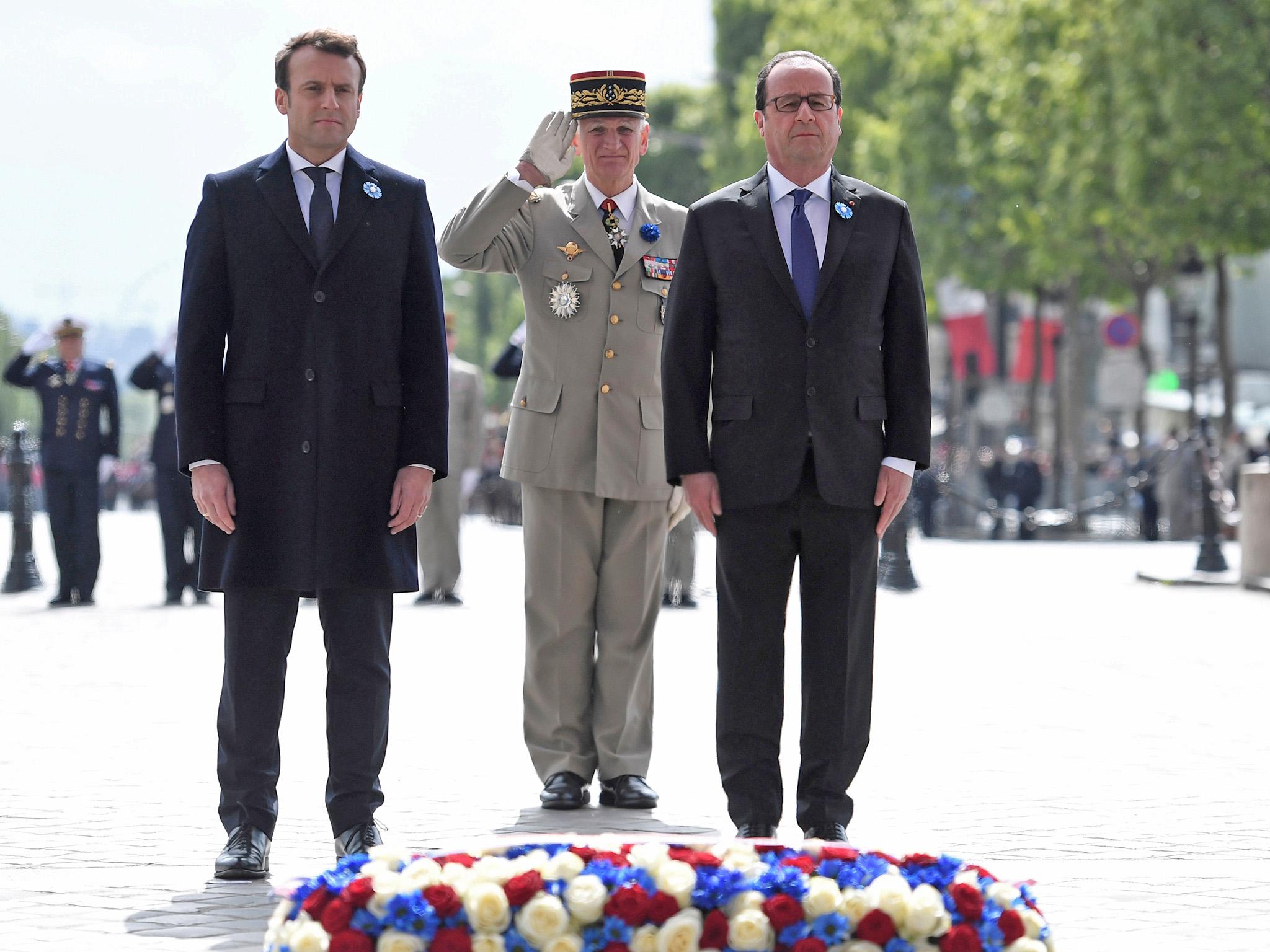French presidential election: Challenges are just beginning for Emmanuel Macron
He may have won 66 per cent of the vote, but there are some very good reasons why the Presidency won't be plain sailing for Mr Macron

Your support helps us to tell the story
From reproductive rights to climate change to Big Tech, The Independent is on the ground when the story is developing. Whether it's investigating the financials of Elon Musk's pro-Trump PAC or producing our latest documentary, 'The A Word', which shines a light on the American women fighting for reproductive rights, we know how important it is to parse out the facts from the messaging.
At such a critical moment in US history, we need reporters on the ground. Your donation allows us to keep sending journalists to speak to both sides of the story.
The Independent is trusted by Americans across the entire political spectrum. And unlike many other quality news outlets, we choose not to lock Americans out of our reporting and analysis with paywalls. We believe quality journalism should be available to everyone, paid for by those who can afford it.
Your support makes all the difference.Emmanuel Macron spent the first day after his presidential election victory at a ceremony of commemoration marking the end of World War II on 8 May.
Current President Francois Hollande spoke of his "emotion" at the event but Mr Macron did not say a word.
The overwhelming margin of his victory, with 66 per cent of the vote, does not tell the whole story of a complicated election.
As soon as the results were announced, a survey revealed that 61 per cent of French people would rather he did not get a parliamentary majority in the next elections to be held in June.
It gets even more complicated if one adds abstention and spoiled ballots. Just 44 per cent of registered voters chose Mr Macron and 43 per cent of those did so primarily to block Marine Le Pen.
In addition, even if Ms Le Pen was beaten, she achieved an unprecedented score for the National Front.
With nearly 11 million voters, she doubled the total achieved by her father in the second round of the presidential election in 2002.
Pundit Stéphane Wahnicht said: "He has only 24% support [among the public]. It is a union of people and political parties against the National Front that has elected him. For the Republicans, they were robbed of their election, and for Mélenchon, with 600,000 more votes he would have made it to the second round."
Hundreds of demonstrators gathered under a "social front" banner in central Paris, forming a collective which called to vote neither for Macron nor for Le Pen.
What is important now is the division of the spoils, particularly on the right wing. The appointment of the Prime Minister will be key.
Mr Wahnicht said: "Either Macron appoints a left-wing prime minister and he only replaces the PS [a moribund party that did not even get 7% in the first round of the presidential election] or he puts an iconic right-wing prime minister who is going to destabilise the Republicans."
Mr Wahnicht thinks in particular of Xavier Bertrand, president of the Haut de France region (in the North) and former minister of Nicolas Sarkozy.
Philippe Braud, another political analyst, thinks on the contrary that "66 per cent against 34 is a major gap".
For him, the comparison with the 2002 election is invalid because "Jean-Marie Le Pen was so demonised that the shock of his arrival in the second round produced a counter-shock" which was reflected in the ballot boxes while the arrival of Marine le Pen in the second round of this election was announced long ago.
He disagrees with the idea Mr Macron won by default, and says he can now go on to win a majority in the legislative assembly.
Moreover, the two-ballot legislative system in France means that "one does not need to obtain 50% of the votes to win the seats".
"I'm not saying that the legislative elections are going to be easy for Macron. He can very well be paralysed by his majority because when you are neither right nor left, it is very difficult to make decisions," acknowledged Mr Braud.
Mr Wahnicht described the difficult exercise of synthesis that awaits the president-elect: "He must have socialist MPs in his parliamentary majority with a right-wing prime minister."
But he is nevertheless optimistic: "Macron struck the other candidates such a blow that it is not impossible."
Join our commenting forum
Join thought-provoking conversations, follow other Independent readers and see their replies
Comments